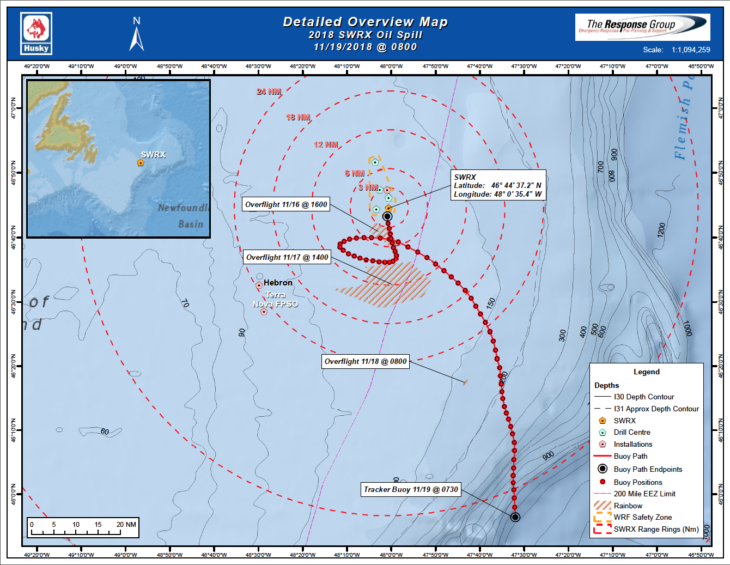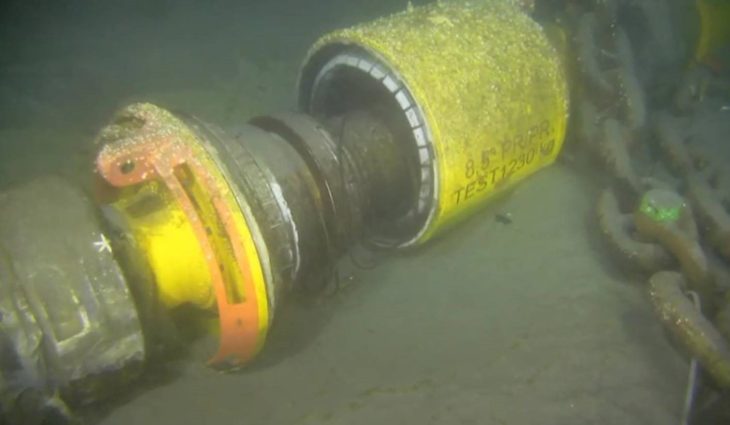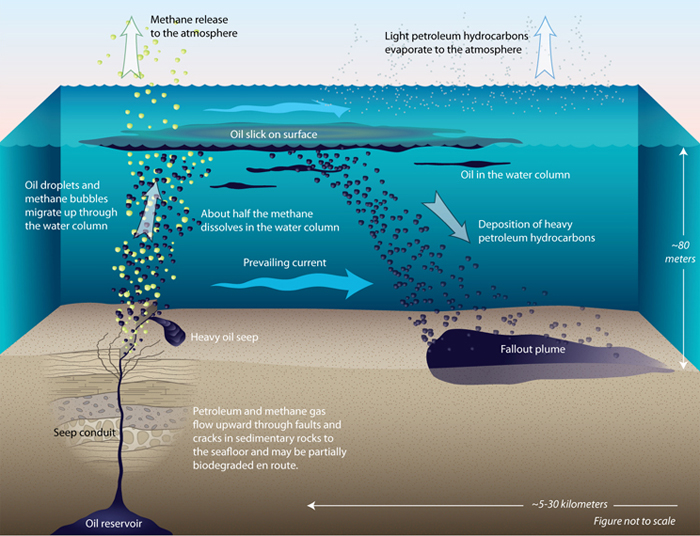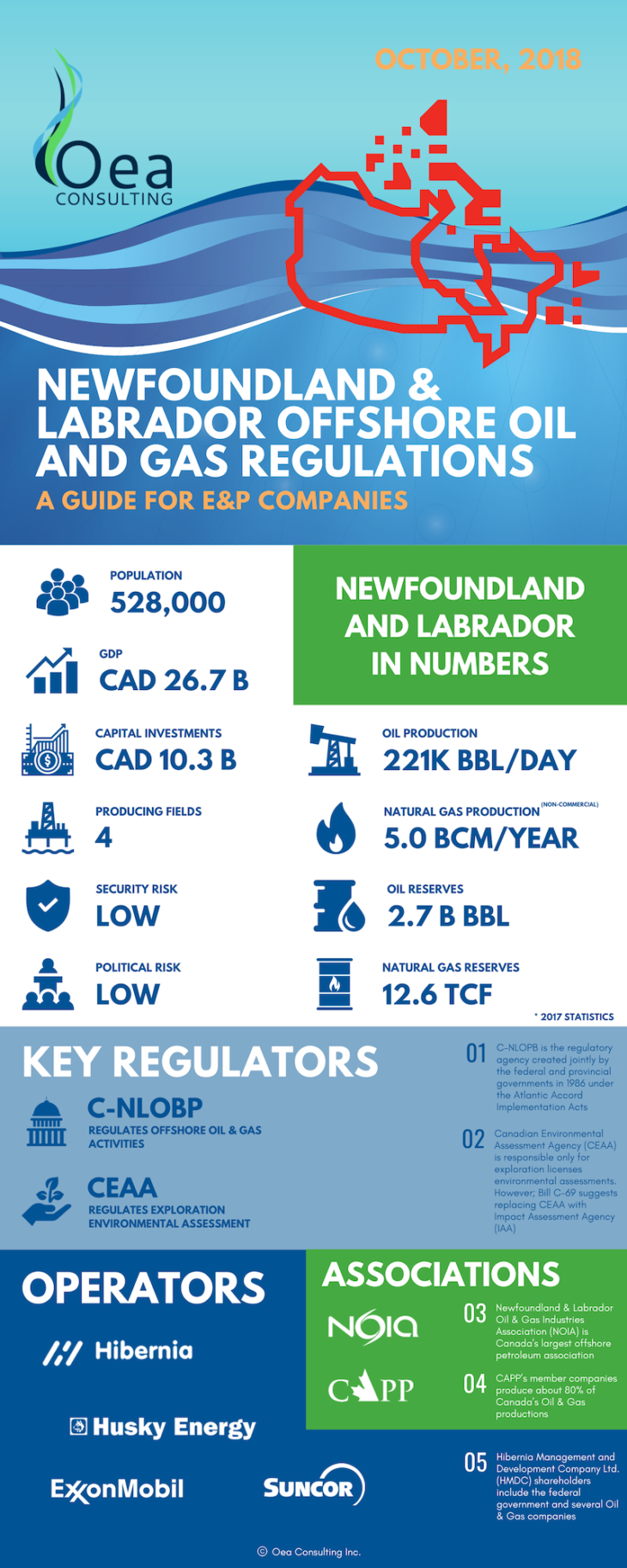The OGM Interactive Canada Edition - Summer 2024 - Read Now!
View Past IssuesPODCAST
LISTEN TO THE FULL COMMENTARY HERE! Simply press this link and press play.
The solution to climate change is not eliminating cars and the solution to oil spills is not eliminating oil production or pipelines.
Oil is the foundation of our world. It’s the most sought-after commodity on the planet because it is in everything we have and do. From the phone in your hand to the gas in your car, the petroleum industry saturates everything.
So to say that oil spills are bad, oil companies are greedy, and that’s why oil spills happen in Canada, is just wrong.
What’s true is that oil is a necessary foundation of our lifestyles just as cars are and we need to be continually improving with our resources. There will be times when accidents happen. It’s more about what we do with those accidents, rather than believing that they should never happen at all.
As an energy nation, our focus has to be in a safe environment and people and to mitigate risk and reduce accidents where ever possible. The oil and gas industry in Canada is already extremely good at that. Canadian oil companies and their subcontractors are among the top environmental and safety Stewarts in the world. That is a fact.
What’s troubling about oil industry rhetoric is that it’s most often out of context, over-reactive and irresponsible. For example, we accept that we are going to have cars and a certain number of accidents in cars. We even have insurance to protect us from that reality. We also need that same level of knowledge, understanding, and acceptance of the oil and gas industry and its operations and limitations. Otherwise, we are merely working against ourselves, trying to eliminate that which sustains us and our current way of life.
Canada’s the world’s 3rd largest producer of oil. Because of oil and gas, we have enjoyed prosperous economic conditions and it is the foundation of Canada’s economy. What happens to our entire economic system if we take that down? Have we thought it all through? The world won’t work without oil and gas. Canada won’t work without oil and gas.
You only have to look at the last 24 months in Canada to see the results of the oil price collapse. 40,000 + job layoffs meant a socioeconomic impact that was unprecedented and staggering. People need purpose and focus in life and the oil and gas industry, directly and indirectly, has been a strong foundation for many Canadians in this light.
We don’t want to lose that foundation and end up with extreme socioeconomic impacts that affect each of us right here at home. Impacts like a rise in addiction, spousal abuse, suicide, and mental illness, all of which we have seen on the rise in the last year or so across Canada especially in oil and gas regions.
Many of the protestors of pipelines across Canada haven’t thought it fully through. What’s Canada worth without oil? How does oil and gas support our healthcare, our infrastructure, our progress? How can we even think about getting to new energy without oil? The reality is, there is no new energy without the support of oil and gas.
Wind turbines are made of petroleum products. Trucks used to transport and erect a wind turbine use gas. The wind can’t blow 24-7, so you need another energy substitute when the wind doesn’t blow. That can be a petroleum fuel. Get the picture?
When Bob Dylan said, “The answer my friend is blowing in the wind,” he was right. New energy is where we need to go, and low and behold, its oil and gas that is going to get us there.
Let’s talk about the reality of oil and gas and how the smartest thing we can do with it, is to use it to bridge us to new energy models that will provide a sustainable future. And as we build that future, we’ll need to supply world oil demand and simultaneously bring in solutions like solar, wind and other forms of energy into the mix with petroleum products.
Are we always going to do it perfectly? No. Are we constantly improving? Yes. Is oil and gas production always safe and incident free? No.
The goal is not perfection the goal is to be as safe as possible and mitigate risk where ever possible. Will there be oil spills? Yes. Like it or not, life’s comforts always come with some setbacks. Sometimes environmental and in extreme cases, just like car accidents, sadly the loss of life.
We are human; we make mistakes. Oil spills will occur under oil demand and oil and gas production. Oil education needs to be understood at an entirely different level because what we see in the mainstream finger-pointing media about oil spills, is neither accurate nor helpful.
Given that oil is our number one commodity on the planet we need to calculate into the production equation that oil spills will happen. From there, our next consideration is how to prevent a spill from reaching the shore, reduce its impact on marine life, and speed up the degradation of any unrecovered oil. All of that can prove even more difficult if the weather conditions are hazardous at the time of the spill.
Offshore Newfoundland conditions are often the harshest and most extreme in the world. And yet we build islands in the sea and progress at a level of ‘genius’ in spite of all of that. To do so requires recognition and a standing ovation in my view, not a finger pointing blame game that sounds something like, ”money hungry oil companies don’t care.” Nothing could be further than the truth.
If there’s a car accident in extreme weather, we don’t poo poo all over the car driver and the accident itself. We have compassion and understanding and try to mitigate that risk in the future. That’s the responsible thing to do. And that’s what we also need to do when it comes to oil spills in our own backyard. In the most recent oil spill which happened offshore Newfoundland in November of this year, conditions were extreme, and it’s a learning opportunity for us all.
Husky Energy does not in any way want to dismiss or downplay the significance of the oil spill. Any spill is a concern to the company, and they have done their best to ensure that such things don’t happen in their operations again.
Husky Energy takes full responsibility for the oil spill and has put appropriate measures in place to try and ensure they don’t happen again. Trevor Pritchard is the Senior Vice President of Husky Energy for the Atlantic region. He is responsible for overseeing operations and explains the recent oil spill that took place 350 kilometres offshore from the SeaRose FPSO, The spill caused 250,000 litres of crude to spill into the sea marking it as the largest offshore oil spill in eastern Canada. The root cause of the incident happened with the FPSO Flowline connectors. “Currently Husky doesn’t know if the flowline connector failed as designed or failed at below operating conditions. We are continuing to develop a plan to recover the flowline connector and have it analyzed.”

Detailed Overview Map of Oil Spill Response
Husky Energy reported, “As soon as oil was observed by our standby vessel, we activated our Oil Spill Response Plan and deployed tracker buoys from the supply vessel and the SeaRose FPSO. The incident happened while warm crude from the SeaRose was being circulated through the subsea network to warm up the flowlines before restarting production.”
Husky Energy has remorse and is building improvement models to correct this in the future, “We are deeply sorry for the incident and are committed to learning from it and putting measures in place to ensure it does not happen again. We have identified, and are already taking steps to address, areas for process improvement especially around the areas of:
Troubleshooting; Non-standard or infrequent conditions; and Adverse weather and challenging conditions.
We are working on improving how we identify and manage non-standard or infrequent operating conditions.
We are also revising our Adverse Weather Policy to add more formality around the process of restarting production.
We have implemented enhanced oversight on critical activities to raise the awareness of potential risks and to provide team back up.”

Flow Line Connector in question
As much as one half of the oil that enters coastal environments comes from natural seeps of oil and natural gas, so the question to ask is if oil seeps are naturally occurring why do we worry so much about oil spills?
The answer to that lies in the amount of oil, in and the nature of oil and the rate of oil spilt, which will then either disintegrate naturally or create harm to the environment.
Oil seeps are often found in places where oil and gas extraction takes place as well. As a result, many surface slicks caused by seeps are often wrongfully attributed to oil releases from oil and gas platforms. Not in the case of the recent Husky Energy spill, however, we need to keep an eye on that and consider it when drilling offshore.
Oil seeps tend to happen in clusters around the world in places like California and the Gulf of Mexico but are still relatively unstudied when it comes to their impact and importance in the overall ecosystem. Organisms and wildlife around these regions adapt to the seeps and can even feed off of them.
In locations where oil seeps are found, oil flows slowly up through cracks in the seabed. Lighter oil compounds that escape into the ocean will rise to the surface and evaporate or become they are taken off by ocean currents. Heavier oils rest on the seafloor and collect over hundreds or thousands of years.
Oil seeps from the ocean floor can be a source of nutrition in deep-sea areas where light is scarce, and unique species needs oil as a source of food. It’s important to note though that the material flowing from seeps is often heavily biodegraded by microbial action and can be handled by the ocean’s ecosystem. It’s non-intrusive and non-disruptive.
In contrast, the production of oil resulting in an oil spill often results in high-volume oil sheens in places that have never experienced significant exposure to oil and the ecosystem will find it intrusive and damages will occur.

This illustration shows the route traveled by oil leaving the subseafloor reservoir as it travels through the water column to the surface and ultimately sinks and falls out in a plume shape onto the seafloor where it remains in the sediment. (llustration by Jack Cook, Woods Hole Oceanographic Institution)
If this were a car accident we’d say, he was lucky and walked away from the accident with a few scrapes and bruises. That’s also the case with this oil spill, overall the environmental impact of the SeaRose oil spill was minimal and could have been a lot worse.
Pritchard and the Husky team takes this situation very seriously, “Any amount of oil is of concern to us, and we will investigate fully to understand how this happened and to put measures in place to prevent a recurrence. We are conducting our own investigation into the incident, and are cooperating fully with the C-NLOPB in its investigation. We are working with the C-NLOPB, our certifying authority, and federal agencies including the Canadian Coast Guard, Canadian Wildlife Service and Environment and Climate Change Canada to ensure that appropriate oversight and mitigations are identified and in place prior to starting the recovery and plugging process.”
Pritchard says, “Concerning impact on wildlife, we observed 18 oiled seabirds. Of six recovered and brought to St. John’s for treatment, two murres have been successfully released back into the wild. During the response, we conducted on water an aerial surveillance for affected wildlife and worked closely with the Canadian Wildlife Service (CWS) and other federal agencies to develop and conduct searches. A total of 26 search grids were completed, each 9km x 9km in size.”
The oil that was released offshore Newfoundland is considered medium weight, which is lighter than water and would have migrated to the surface quickly. A certain amount of it would have evaporated, reducing the volume of oil on the sea surface.
Given the wind and sea states at the time, waves would have broken up the oil on the surface into small drops which would have dispersed into the water column. No oil sheens have been observed since November 18, 2018, and there’s a reason for that. With the extreme weather conditions that occurred and 8.4-meter waves thrashing around, the oil on the surface was allowed to dissipate rapidly.
In this case, one could say that oil and water did mix and thankfully the results of this oil spill were minimal all things considered.
What the oil and gas industry really needs is for the public to be educated about the industry and its positive impact on our nation. We need to applaud the work of progress and ensure that when accidents like oil spills do happen, we learn from them and move forward.
Canadians need to work together to collaboratively elevate this nation. Oil and gas is the foundation for our future and it is the gateway to a new energy sustainable future.
_______
MORE ABOUT OFFSHORE NEWFOUNDLAND

Source and Graphics: Husky Energy, OEA Consulting, Woods Hole Oceanographic Institution
Did you enjoy this article?